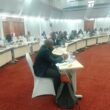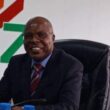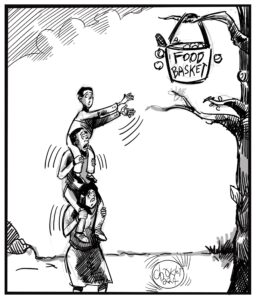UPND spokesperson Charles Kakoma says the Electoral Commission of Zambia (ECZ) should not brag about registering seven million voters because they did a terrible job by disenfranchising voters.
On Wednesday, the Commission announced that it had registered a total of 7,020,749 voters in the just-ended voter registration exercise.
But in an interview, Kakoma said that the UPND was unhappy with the number of registered voters, adding the Commission only succeeded in disenfranchising would-be voters.
He added that the Commission’s failure to disclose the number of registered voters per province raised suspicions.
“We are not happy with the numbers that the ECZ has announced. In fact, the ECZ are mocking the many potential voters that have been left out of the registration exercise! Many people were left in the queues, they could not register. That cannot be described as success. In the old register, there were about six million registered voters and if they can boast of seven million voters, that is an addition of one million. And we know that first-time voters, who wanted to register, were more than one million. They have been denied their constitutional right,” said Kakoma.
“Further, we want the ECZ, which failed lamentably at their press conference, to give us a breakdown of how they registered people province-by-province, district-by-district and constituency-by-constituency. That should be data that should be at their fingertips. Their failure to produce that information is raising suspicion of what they want to do with that data, which is in their system. Is it for purposes of manipulation? Why are they failing to produce it? They have no credible reason why they can’t give us those figures, therefore, the ECZ cannot be bragging and boasting that they have done a good job. They have done a terrible job!”
On Wednesday, ECZ chief electoral officer Patrick Nshindano said the number of registered voters was something to be proud of because it was in tandem with global standards.
“When you look at the 2016 register in comparison to the eligible population as it stands now, it is important that you get to also understand that the percentage is at 63 per cent that is when you knock off the deceased persons. In comparison to the provisional register and the 2016 register, the percentage, including the deceased, when you take the whole holistic number, it is 104.8 per cent against the 2016 when you include the deceased. But when you look at all the valid voters on the 2016 register in comparison, it is at 132, 51 per cent of that register. So, an addition of 1,722,377 additional voters have been added to the register, including when you look at it from an aggregate number in comparison to the 2016 register. For us, this is extremely pleasing on the part of the Commission because this is above the global average. When you look at most countries in terms of what they are able to capture, by the way there is no country in the world that has been able to capture all the eligible voters, including where they have laws that make it compulsory, countries such as Australia is one of the few if not the only one that has breached the 90 per cent threshold where they have 90.1 per cent,” explained Nshindano.
“Most of the countries are below that. They average around 70 per cent. If you look at some of these developed democracies, for example, if you look at the UK, they have 76.8 per cent; France 74 per cent; Germany 76 per cent; the US, if you look at what the Census Bureau indicates, they had registered 157 million against 245 million eligible voters, accounting to about 64 per cent. We come back to Africa; South Africa, which is one of those that are deemed to be ‘good models,’ 76 per cent. Recently, we have been compared with our neighbours, Malawi, they had 73 per cent. So, I think, as a country, we have a lot to be proud of what we have achieved in such a short period of time.”







